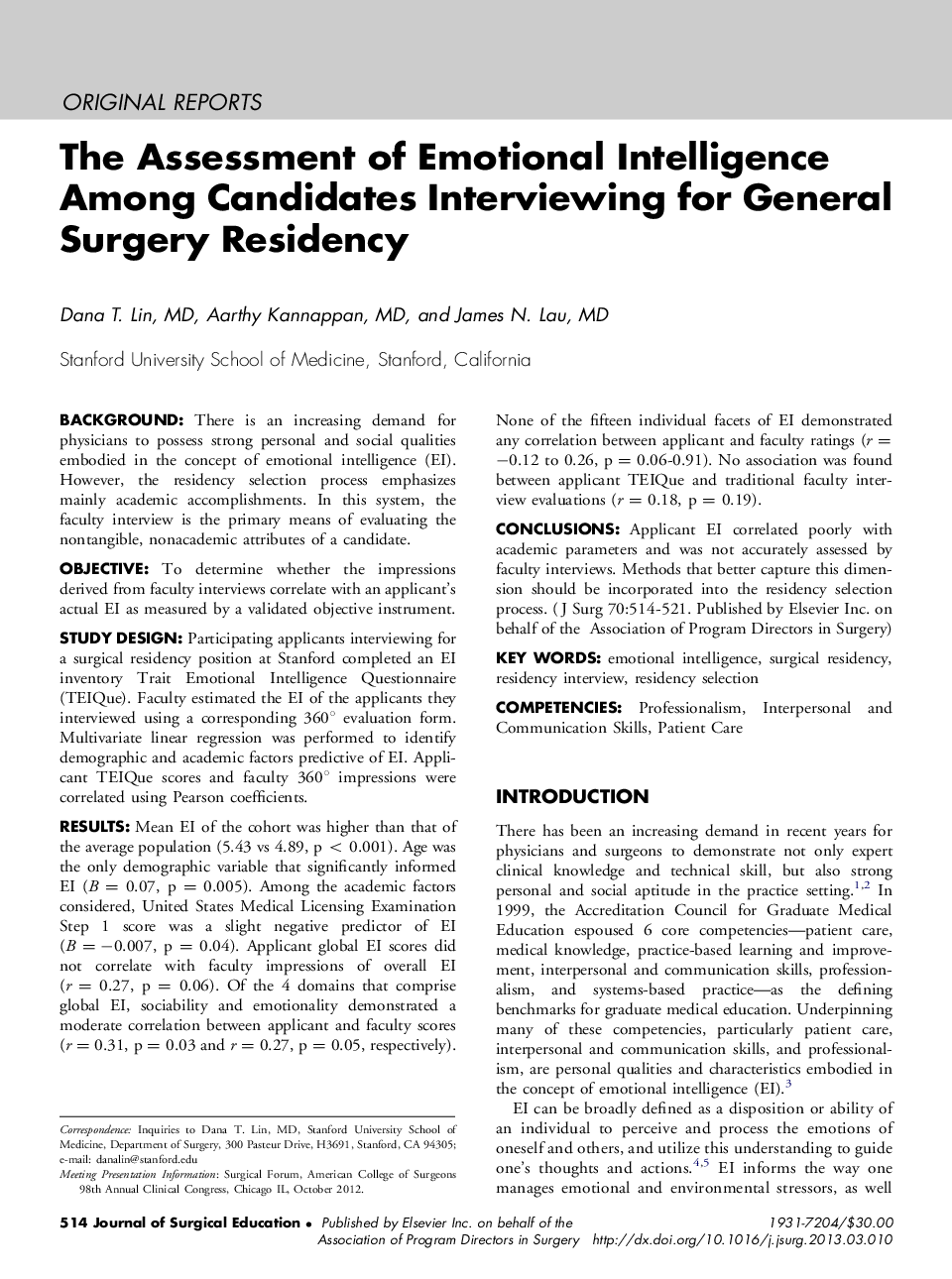| کد مقاله | کد نشریه | سال انتشار | مقاله انگلیسی | نسخه تمام متن |
|---|---|---|---|---|
| 4298078 | 1288340 | 2013 | 8 صفحه PDF | دانلود رایگان |

BackgroundThere is an increasing demand for physicians to possess strong personal and social qualities embodied in the concept of emotional intelligence (EI). However, the residency selection process emphasizes mainly academic accomplishments. In this system, the faculty interview is the primary means of evaluating the nontangible, nonacademic attributes of a candidate.ObjectiveTo determine whether the impressions derived from faculty interviews correlate with an applicant's actual EI as measured by a validated objective instrument.Study DesignParticipating applicants interviewing for a surgical residency position at Stanford completed an EI inventory Trait Emotional Intelligence Questionnaire (TEIQue). Faculty estimated the EI of the applicants they interviewed using a corresponding 360° evaluation form. Multivariate linear regression was performed to identify demographic and academic factors predictive of EI. Applicant TEIQue scores and faculty 360° impressions were correlated using Pearson coefficients.ResultsMean EI of the cohort was higher than that of the average population (5.43 vs 4.89, p<0.001). Age was the only demographic variable that significantly informed EI (B = 0.07, p = 0.005). Among the academic factors considered, United States Medical Licensing Examination Step 1 score was a slight negative predictor of EI (B =−0.007, p = 0.04). Applicant global EI scores did not correlate with faculty impressions of overall EI (r = 0.27, p = 0.06). Of the 4 domains that comprise global EI, sociability and emotionality demonstrated a moderate correlation between applicant and faculty scores (r = 0.31, p = 0.03 and r = 0.27, p = 0.05, respectively). None of the fifteen individual facets of EI demonstrated any correlation between applicant and faculty ratings (r =−0.12 to 0.26, p = 0.06-0.91). No association was found between applicant TEIQue and traditional faculty interview evaluations (r = 0.18, p = 0.19).ConclusionsApplicant EI correlated poorly with academic parameters and was not accurately assessed by faculty interviews. Methods that better capture this dimension should be incorporated into the residency selection process.
Journal: Journal of Surgical Education - Volume 70, Issue 4, July–August 2013, Pages 514–521